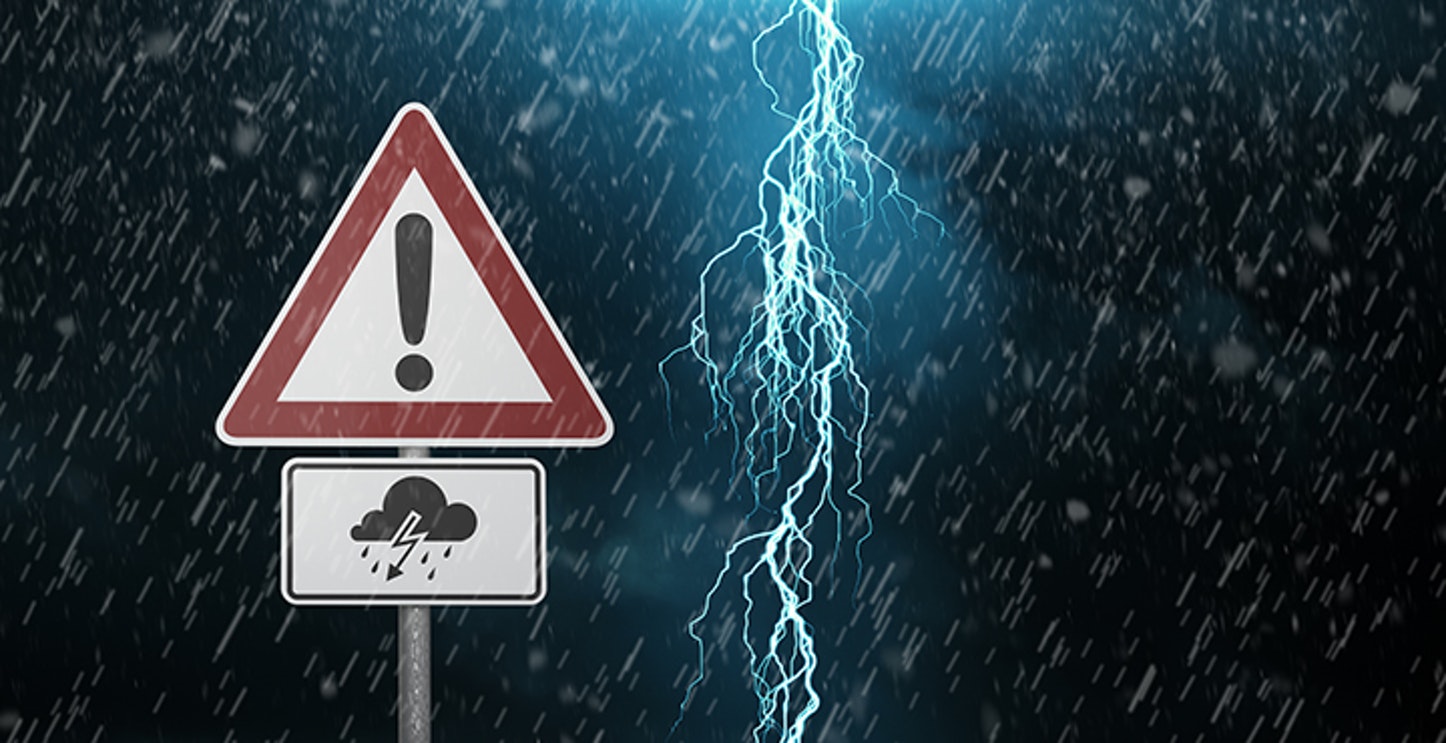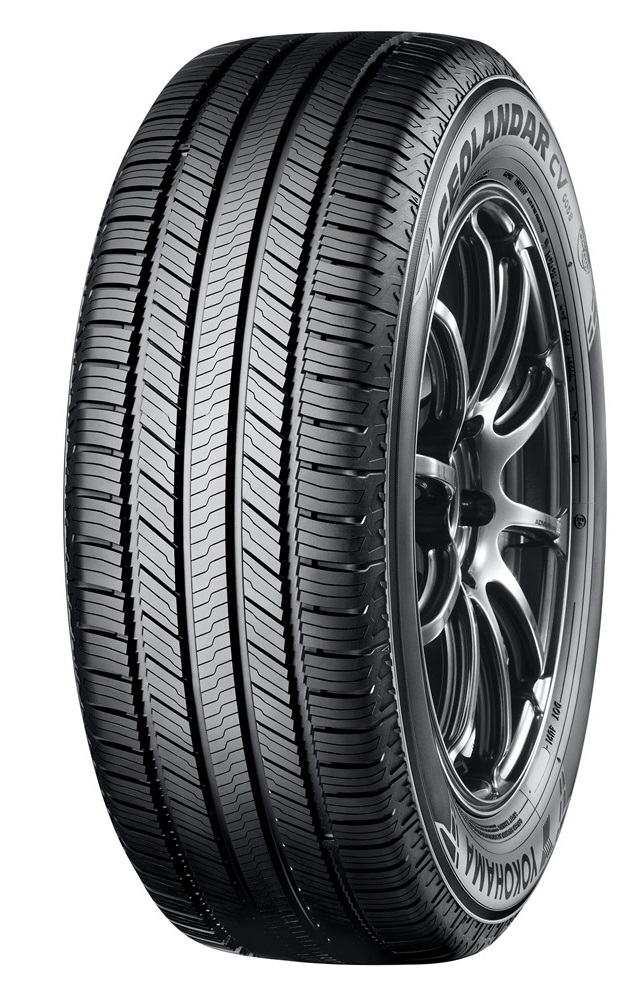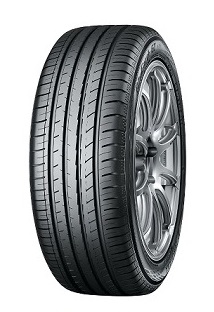There’s little that Brits like more than talking (moaning?) about the weather and, from scorching heatwaves to thunderstorms, we’ve had some pretty unpredictable weather in the UK this month, which can have a huge impact when we’re driving on the roads.
With more dramatic weather set to hit Britain in the coming weeks, a recent study by The Mirror, reveals that a third of drivers don’t know what their car insurance covers or what to do if they had an accident. We’ve taken a close look at how varying conditions can affect your premiums, and how you could be caught out by your provider if you aren’t aware of the terms.
Florence Codjoe, Car insurance expert at Uswitch, provides advice for drivers during the UK’s unpredictable weather, along with the essentials to check before heading out on the road.
Thunderstorms
As we’ve seen in recent weeks, thunderstorms and heavy rain can be hazardous, as not only do they impact your visibility, they can also affect your brakes and engine during and after driving.
Car insurance expert, Florence Codjoe, says: “With adverse weather conditions, such as thunderstorms, extreme rain and flooding coming our way, it’s worth checking whether your insurance covers you for these situations.
“Driving through flooded areas can affect your brakes and obscure your visibility when driving, which means your premium could be impacted if you drive against weather warning advice, and you’re involved in an accident.”
How to stay safe
- Check your brakes before and after driving
- Drive slowly through puddles
- Ensure your windshield wipers work
- Check your front and rear headlights before setting off
- Be mindful of pedestrians or cyclists
- Double the distance between you the vehicle ahead
To avoid hitting a pothole or damaging your car, try to drive slowly through puddles and avoid slamming on your brakes. After you clear a deep puddle or water, test your brakes by applying gentle pressure, allowing them to air and dry off.
Heavy rain is also likely to restrict your visibility, meaning your windshield wipers and headlights are a necessity when driving. If these are damaged or in need of repair, your insurance may not cover you if you need to make a claim.
If you do happen to get caught in a storm, take it slowly, not only for your safety but for pedestrians and cyclists, too. At anything above a slow crawl you’ll throw water onto pavements, soaking those passing by. You could be fined up to £5,000 and get points on your licence for this.
Heatwaves
When driving in hot weather, your car can face a number of problems, from overheating brakes to bulging tyres. If you aren’t aware, these can affect your premiums or invalidate your car insurance if you need to make a claim.
Florence Codjoe advises:
“During adverse weather conditions it’s important to drive responsibly. Extreme heat can affect your car battery, can cause cracking, and can affect your tyres. Additionally, ensuring you’re wearing appropriate footwear to drive – no flip flops or barefoot!
“Ventilating the car appropriately – opening windows or using aircon – can help avoid the risk of drowsiness on your journey. Check your policy to ensure that you’re covered for such conditions. Be prepared that you’re likely to pay more, for higher levels of cover.”
How to stay safe
- Check your car battery
- Don’t wear flip flops or drive barefoot
- Keep your car ventilated
- Check your tyre pressure
Before heading out in a heatwave, make sure to check your tyres. Driving on under-inflated tyres in high temperatures can increase the chances of a blow-out by 60 per cent. The heat can also make the air inside the tyre expand, causing over-inflation and, in extreme circumstances, bulging of the tyre wall.
Not only this, but hot weather can hinder the chemical processes inside car batteries, which means they’ll struggle to hold charge and produce enough power. A slow starting engine, dim lights, and a bad smell are all signs you might need a new battery.
Car insurance policies could also risk being cancelled by insurers if you are caught driving without due care and attention. Driving in warm weather can make you feel tired and drowsy, which could put you at a higher risk of a collision. Although there are no strict rules on using air conditioning or opening your windows, the Highway Code does say cars must be kept well ventilated.
Placing a wet cloth over the middle vent of the dashboard will also help cool the air that blows through and prevent cracking.
Fog
Driving in fog can be scary, especially when your visibility is impaired. Unsafe driving in foggy conditions could lead to heightened car insurance premiums, if you are involved in an accident.
The Highway Code states you should always allow a four second gap between you and the vehicle in front, and avoid drifting between road markings. If conditions are impairing your ability to drive safely, officials advise to pull over until it improves.
How to stay safe
- Use fog lights only when visibility is severely restricted
- Remember to turn them off when it improves
- Remove damp from your windscreen and mirrors
- Use your heater to clear condensation
By law, you must switch on your headlights when visibility has been reduced and you can’t see for more than 100 metres. To put it into perspective, this is about the same length as a football pitch. You can also use your front or rear fog lights, but when visibility improves you must switch them off to avoid dazzling other drivers. If you use your fog lights incorrectly, you could be faced with a £50 fine.
It’s also important to maximise your visibility by wiping any damp from your windscreen and mirrors, and using your heater to clear condensation.
Snow
Whilst we’re not expecting snow just yet, this is the UK, so who knows? Just in case we do get a blast of cold weather, or if you’re planning on heading to a destination where it’s expected, here’s what to check to avoid your insurance premiums hitting the roof.
Whilst it’s likely your car insurance will still be valid if you take it out in the snow, if your insurers believe you have negligently put your car in harm’s way, then any claim could be questioned.
So, if you take a risk and try to travel in heavy amber or red weather warnings and end up in an accident, you may find it difficult to make a claim.
Uswitch’s Florence Codjoe said:
“Cold weather paired with snow and fog could affect your car insurance cover. With adverse cold weather conditions, your engine oil can be affected as well as your car battery.
“Your premium could be impacted if you drive against weather warning advice, and you’re involved in an accident. “
How to stay safe
- Don’t leave your car unattended when defrosting
- Clear all snow off the roof and windows
- De-ice your licence plate
- Check your engine oil before leaving the house
Checking your engine oil before heading out in snow is always advised, as low oil levels will make it difficult for the engine to start and more susceptible to damage. To check the engine oil levels you’ll need to use the dipstick – wiping it with a cloth first to get an accurate reading – and the level should sit between the minimum and maximum markers.
Also, it’s worth mentioning that nipping out to switch your engine on early may seem like a clever way to defrost your windscreen. But you can invalidate your insurance if you leave the motor running unattended. That is because most providers will refuse to pay out if drivers fail to live up to their “duty of care” — a common clause in contracts.
Driving in weather warnings
Whilst there remains a lot of confusion around how yellow, amber, and red weather warnings affect drivers, heading out on the roads will not automatically invalidate your insurance providing you drive safely and follow precautions.
According to the AA, a red weather warning indicates drivers should only travel on the road if essential, as extreme weather is expected.
An amber weather warning means there is an increased likelihood of bad or extreme weather, potentially disrupting plans and causing travel delays. Whilst yellow means you should be aware, as severe weather is possible over the next few days and could affect you.
The Met Office issues weather warnings seven days ahead, allowing time for drivers to plan ahead and think about possible travel delays or disruption.
If you take these basic precautions and check the weather forecast before venturing out on the roads, then you could not only enhance your- and others’ – safety but also avoid penalties for breaking the law and the possibility of having your insurance declared invalid.









